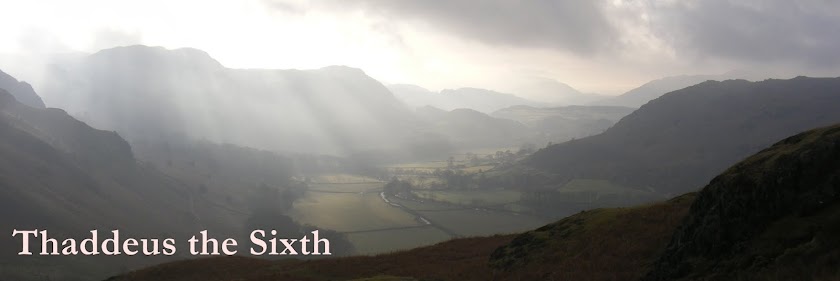This was passed onto me
by the delightful EJ Tett,
author of various books (mostly YA fantasy), including The Power of Malinas Trilogy.
What am I working on?
My main
work-in-progress (WIP) is Sir Edric's Treasure, the second story in
The Adventures of Sir Edric. The eponymous hero finds that it's not
nice to be wanted when it means a gang of ruthless bounty hunters are
after you. To procure funds to pay off his huge bounty, Sir Edric
(accompanied by his trusty manservant Dog) takes part in a
competition to try and win an enormous inheritance. But he's not the
only competitor, and he'll need all his cunning to stay ahead of his
rivals, and the bounty hunters.
How does my work differ
from others in its genre?
It's pretty rapid-paced
fantasy comedy, and I try to add a certain dose of healthy cynicism
to fantasy. Sir Edric's a selfish, sceptical, worldly wise fellow. He
has no aspirations to world domination (or saving it either), he just
wants to make some money, have as much sex as possible, and not die
in the immediate future.
Why do I write what I
do?
I enjoy it, and
(hopefully) other people do too. I like grimdark a lot, but I also
enjoy a lighter approach. Other people raising a smile or laughing
out loud at my work (ahem, in a good way) is greatly rewarding.
Besides, often when reading fantasy certain peculiarities do spring
to mind, and it's nice to point these out in a gently mocking way. An
example I haven't written about yet would be Mount Doom, and Sauron
being the most stupid chap in the world.
There's one place, just
one, in all the world that can destroy the Ring. Sauron has an
enormous army of Nazgul, orcs, elephants (more or less) and so on.
How many men does he assign to guard the solitary entrance to the
only place that can undo him? 10? 1,000? 10,000? None. Not one. He's
an utter blithering idiot.
How does my writing
process work?
Work is such an...
optimistic word.
For comedy, it operates
with a sense of chaos and uncertainty. Planning is minimal (excepting
the basics of the central storyline) which has its ups and downs.
Each chapter tends to be more spontaneous than it otherwise would be,
and I think that helps creativity and comedy. On the other hand, it
does sometimes make progress slow.
I also have four
unfortunate beta readers in whose general direction I fling chapters
every so often (if possible I prefer to have each chapter read by at
least two beta readers, with all, if possible, reading the first and
last). Without them everything would be much, much worse, because I'm
hopeless at objectively assessing my own comedy (when you've read a
joke seven times it becomes an act of guesswork to try and assess how
amusing it would be to someone else).
Due to some computer
issues (and, er, being so absent-minded I have to check several times
a day I'm still wearing trousers), I only remembered to get one more
person to carry this on, but she is a delightful one, worth twice the
average at the least:
LK Evans is the author
of Keepers of Arden (The Brothers volume 1), with a sequel in the works.





